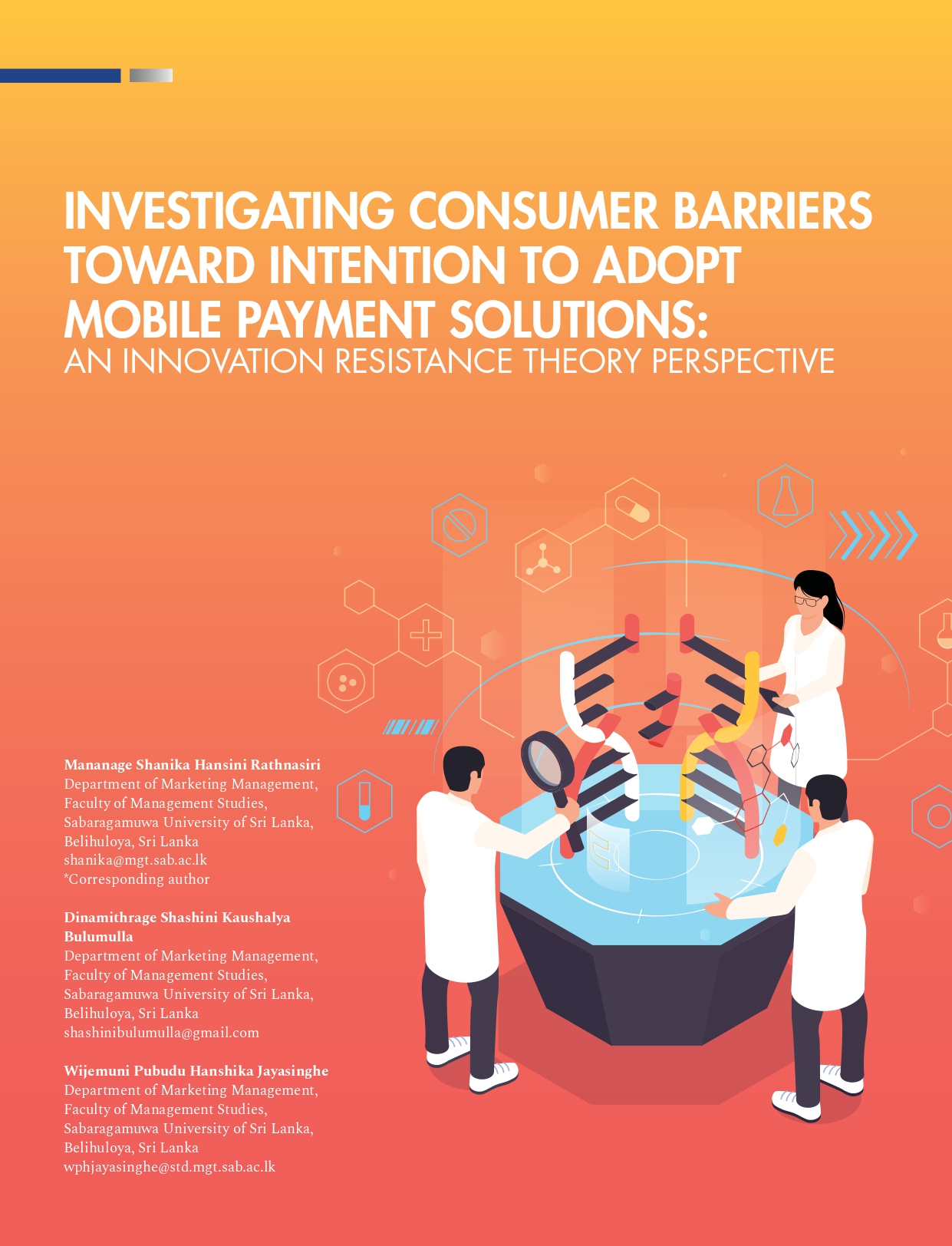While the world has moved towards a digital era, mobile devices have revolutionised financial transactions by serving as multifunctional tools. However, despite their numerous benefits, the adoption of mobile payment solutions among Sri Lankan consumers remains relatively low. This study examines the barriers that hinder consumers’ intention to adopt mobile payment solutions in Sri Lanka, applying the theory of innovation resistance. Using the deductive research approach with self-administered questionnaires, data were collected from 350 Sri Lankan consumers living in the Colombo district who are aware of mobile payment solutions. The collected data were statistically analysed using multiple regression analysis with the support of SPSS software. It has been identified that usage, risk, tradition, and image barriers significantly influence consumers’ intention to adopt mobile payment solutions in the Colombo district, Sri Lanka. This study offers practical recommendations for service providers to address these barriers, thereby reducing customer resistance and facilitating the successful adoption of mobile payment solutions. From an academic perspective, the study contributes to a limited body of empirical studies in this area by applying Innovation Resistance Theory. Furthermore, this study provides valuable insights for service providers to design more effective marketing strategies that cater to customer needs.


